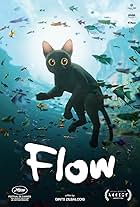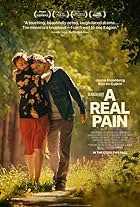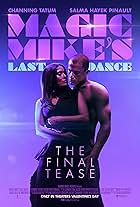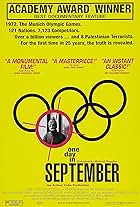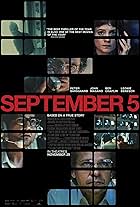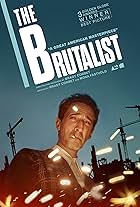
bjacob
Joined Aug 2005
Welcome to the new profile
We're still working on updating some profile features. To see the badges, ratings breakdowns, and polls for this profile, please go to the previous version.
Ratings1.5K
bjacob's rating
Reviews75
bjacob's rating
Four stories of wannabe criminals attempting to improve the lot in life through illegal activities, and fumbling it with various degrees of success. But every character here is sympathetic, and their reasons are presented from a viewpoint of empathy. Despite the rhythm never too tight, and occasionally positively glacial, it's actually very funny, inviting us to linger on the facial expressions, the gestures, the little details. Jean Rochefort and Laurent Terzieff, Arno Hintjens and Alain Bashung are spectacular. You can detect influences as varied as Tarantino, Kaurismaki, Jarmusch, and the French crime serials of the silent era. The result is oddly uplifting and very entertaining.
Helpful•00
I watched this film as a kid and it might be one of the reasons for my lifelong love of Jeff Goldblum. I rewatched it out of nostalgia or curiosity.
Sadly, it's just not very good. There are funny bits, like the character of Atkinson, and some of the asides during parties or group scenes. However, it's not enough to elevate a very conventional script: you see all the tropes that will reappear in later Curtis movies, and it's just a bit too transparent, perhaps also because of the benefit of the insight. Most of the jokes fall flat, or sound dated.
Another weakness is that Jeff Goldblum is miscast. Are we really supposed to believe he's an insecure wreck unable to ask a girl out, while all of his body language and demeanour indicate that he, in fact, owns the place, the city and most of the hinterland? Emma Thompson is rigid as a plank, and they have zero chemistry.
In short, some thirty-five years later, I see its flaws. Nostalgia is a very.deceitful thing.
Sadly, it's just not very good. There are funny bits, like the character of Atkinson, and some of the asides during parties or group scenes. However, it's not enough to elevate a very conventional script: you see all the tropes that will reappear in later Curtis movies, and it's just a bit too transparent, perhaps also because of the benefit of the insight. Most of the jokes fall flat, or sound dated.
Another weakness is that Jeff Goldblum is miscast. Are we really supposed to believe he's an insecure wreck unable to ask a girl out, while all of his body language and demeanour indicate that he, in fact, owns the place, the city and most of the hinterland? Emma Thompson is rigid as a plank, and they have zero chemistry.
In short, some thirty-five years later, I see its flaws. Nostalgia is a very.deceitful thing.
Helpful•00
Marco likes the spotlight, and dramatic stories are for him a viable mean of obtaining it. In his youth, he tries his hand at telling imaginary feats of heroism, but later he will fly even higher, so close to the sun indeed. He will become the president of an association of deportees: a much loved president, working tirelessly and effectively to raise the profile of the association. Problem is, he's not a deportee.
His story reminded me of the lady who pretended to be black, in the strict sense that Marco too believes strongly in the cause, and believes himself to be useful to it: the lady probably believed it was just an accident of birth that made her be actually white, Marco similarly believes that him not being a deportee is just a detail, an accident of history. He will go to great lengths to reconcile his personal truth with the "real truth", or more exactly with the public truth, the mediatic narrative.
This is a character study, not a thriller, albeit there is strong tension in the first half. Ultimately, the authors tell us, what we present to the world is never truly what we are: Marco just went a bit higher, just a bit too close to the sun.
His story reminded me of the lady who pretended to be black, in the strict sense that Marco too believes strongly in the cause, and believes himself to be useful to it: the lady probably believed it was just an accident of birth that made her be actually white, Marco similarly believes that him not being a deportee is just a detail, an accident of history. He will go to great lengths to reconcile his personal truth with the "real truth", or more exactly with the public truth, the mediatic narrative.
This is a character study, not a thriller, albeit there is strong tension in the first half. Ultimately, the authors tell us, what we present to the world is never truly what we are: Marco just went a bit higher, just a bit too close to the sun.
Helpful•310







